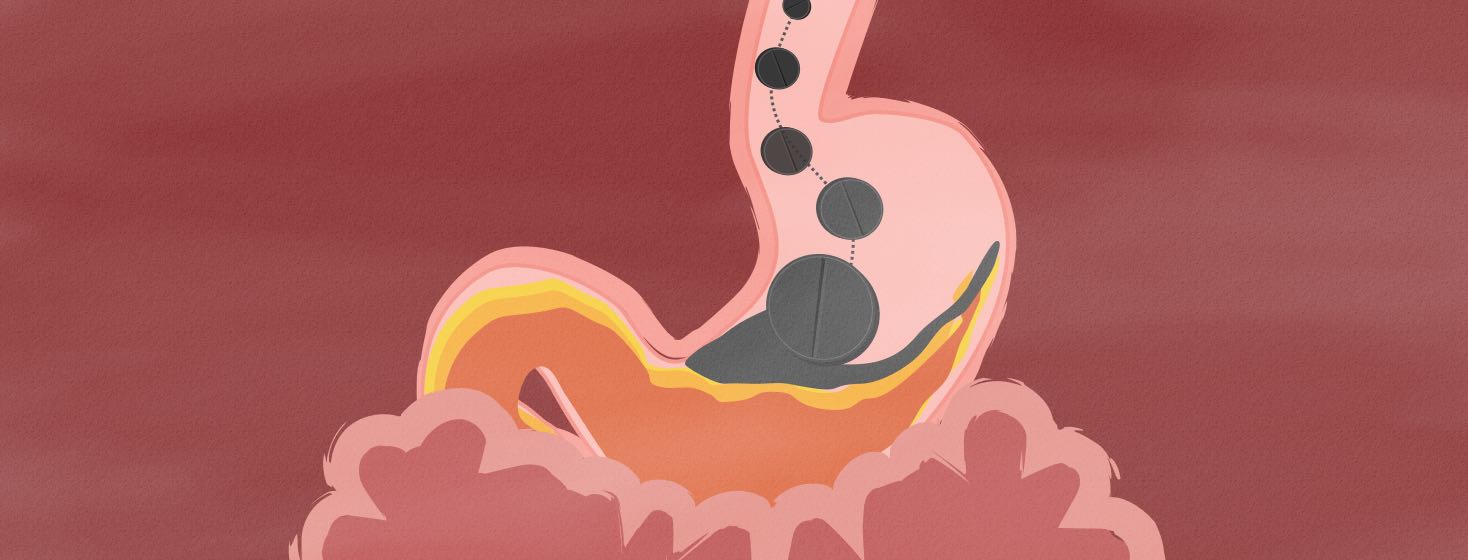Activated Charcoal: Helpful For An IBS-Flare?
As a child, whenever I had diarrhea, my family's go-to remedy was Imodium. I didn't have IBS as a child, at least not officially – and it wouldn't be till I was half-way through college that intestinal issues became a real issue affecting my daily life. Nonetheless, I still was somewhat more prone to "tummy problems" even as a kid. So when I went to college, I took Imodium with me, and used it for the few times I had diarrhea my first couple of years in college.
My Imodium wasn't working
However, this all changed my junior year of college, when my bowel problems hit an intense level. It seemed no matter what I ate, everything went through me. I wound up taking Imodium multiple times a week, and sometimes several days in a row. It barely helped and seemed to cause gut motility issues.
Then one day the following summer when I had a bout of diarrhea on the road returning late night from a concert across the state line (which meant my friend who was driving had to keep pulling over at gas stations and other places for me to use a bathroom), I took three capsules. After that, I couldn't have a bowel movement for a week (!) – and my belly became painfully distended. I decided I needed to stop using it, as even the doctor mentioned it could cause disruption in my bowels working properly.
IBS and activated charcoal
I decided, in general, to try not to use medications or quick-fix remedies for diarrhea and to achieve change through my diet and nutrition. However, I still needed something as a back-up for emergency scenarios. For that, I began to carry activated charcoal tablets on me. So when I was traveling or having a big night out, and if I was experiencing gas and bloating or if while I was there, I felt a flare coming on, I would take one or two of those instead of Imodium. Overall, it helped, though occasionally it didn't prevent a flare if it was already well on its way (though I think it cut it short). I think it was relatively good at relieving gas and bloating and decreasing the length and frequency of bouts of diarrhea.
IBS and activated charcoal research
Some studies have shown similar positive effects for charcoal. One study found it was nearly three times more effective in alleviating diarrhea and abdominal discomfort than a placebo.1 Another study from 2002 found that about 60 percent of patients trying a charcoal tablet for IBS experienced some relief (though a caveat were subsequent followup saw decreasing gains in its efficacy). The study concluded that the charcoal tablet they were studying "was effective and safe in IBS, a complex disease requiring long-term treatment." 2
That being said, it's best to practice caution if/when trying charcoal tablets and consult your doctor.
My experience with activated charcoal and IBS
One issue is that charcoal works by binding itself to irritants and toxins in the gut (it's also used for those who overdose or accidentally ingest poison). This obviously can benefit IBS. But as the Cleveland Clinic notes, it can also absorb nutrients of the food you are eating and interfere with medications.3 For this reason, I have tried not to take it with food or medicine, unless I have a major flare coming on at an inopportune time.
Right now, I haven't really taken charcoal hardly at all in the past few years, though I am thinking of replenishing my stocks as a backup resort. It can be a potentially handy thing to have for those of us with IBS (particularly IBS-D), when used sparingly and with discretion.
Do you ever use or have you used charcoal to manage certain IBS symptoms? What are your experiences? Please answer in the comments below!

Join the conversation